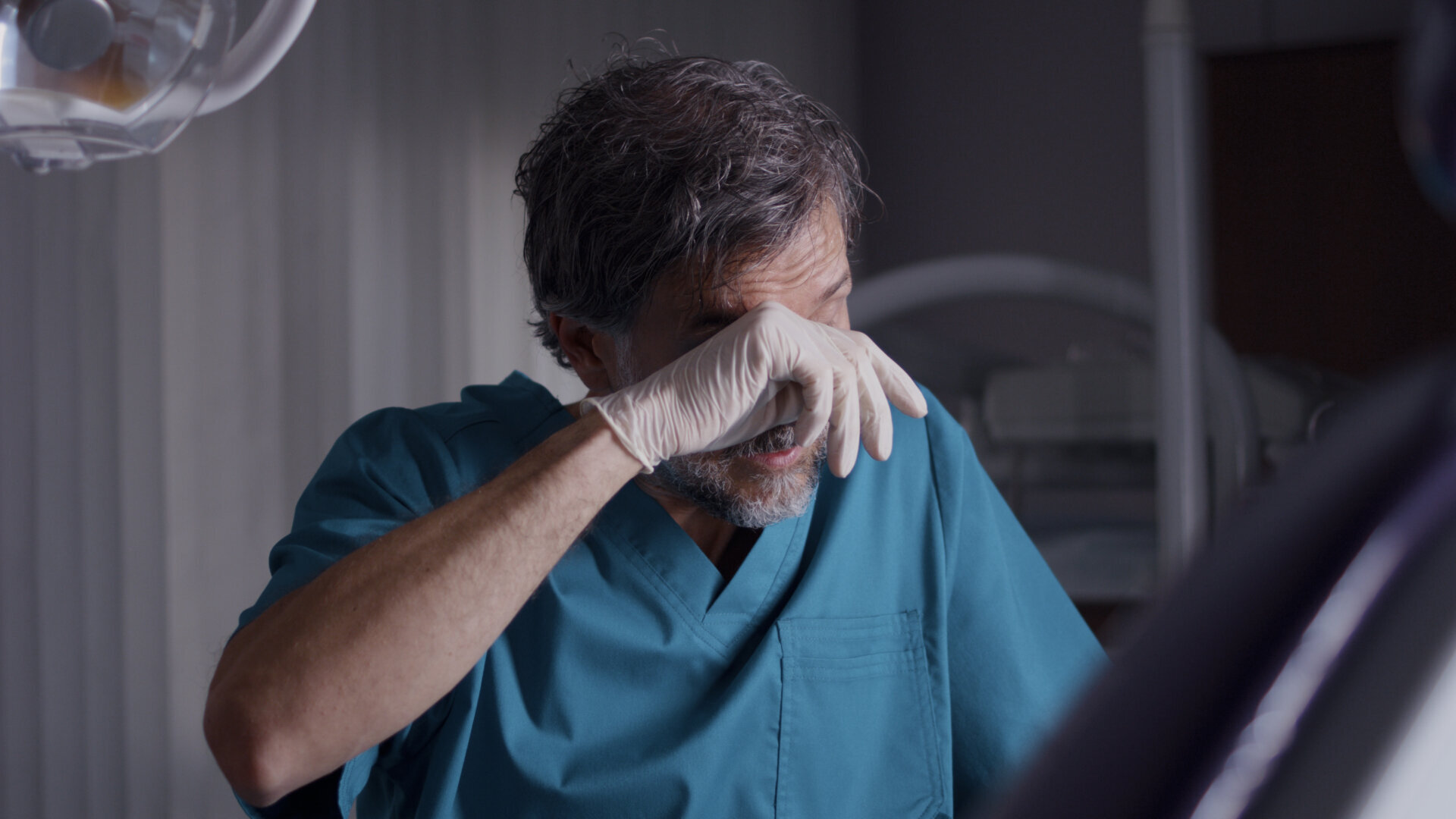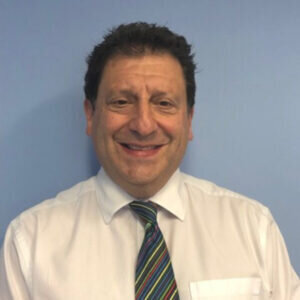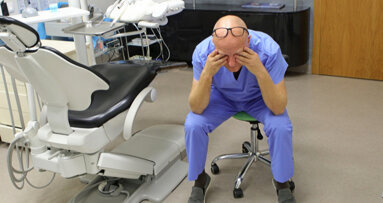Over the past four decades, I have dealt with many stressful situations. A complaint from the National Health Service in my first year of practice, financial issues at various times in my career and all the worries of mishaps in running a dental practice have afflicted me, along with complaints from patients. It is impossible to go through a career and not face problems.
About 15 years ago, I read an anonymous post on GDPUK, a mailing list and online forum for UK dental professionals, about a dentist who was accidentally responsible for the death of a patient who suffered an anaphylactic reaction to Corsodyl. I replied to the post, suggesting we needed a helpline. Although many people supported the idea, no one took the initiative, and neither did I. Over the next decade, more harrowing posts followed, and I remember suggesting the idea again. Although many people supported the concept, nothing happened.
In 2017, while at my local gym, a dental colleague who appeared very troubled caught my attention. When I enquired what was wrong, he asked, “Have you heard about Sean?” “Sean who?” I asked. “Sean Ferguson,” he replied. I did not know who this dentist was, but my colleague explained that Sean had ended his own life. He apparently had had some mental health issues and problems with the General Dental Council (GDC). I will never forget the haunting words of this colleague, who had qualified with Sean and was his friend: “I wish I had done more,” he told me.
Although I never knew Sean, this tragic story profoundly affected me. A few weeks later, I naively contacted GSK (now Haleon) and asked for funding to set up a helpline. They politely refused, stating they supported existing charities and suggested I reapply once I was a registered charity with at least three years of operation.
“Simply talking about your issues and frustrations can help you come to terms with them.”
Not long after, driven by a sense of mission, I started contacting every major organisation I could think of, including the British Dental Association (BDA), the Faculty of General Dental Practice, the British Dental Industry Association, the BDA Benevolent Fund, all three major indemnity organisations and the GDC, as well as the CEO of Henry Schein and a few eminent dental practitioners. MDDUS, one of three major medical defence organisations in the UK, kindly allowed me to use their premises in London to hold a meeting. I also invited the vice chairman of LawCare, which provides a helpline for lawyers and legal staff.
To my surprise, many of the CEOs and directors attended the meeting. Although they were supportive, they were also quite defensive, especially the representatives of the indemnity organisations who believed that they had the issue under control by signposting concerned individuals to professional help. I retorted that not all people would necessarily confide in them. The meeting concluded with a challenge to prove that there was a need for a helpline for dental professionals.
Someone at the meeting told me about a Facebook group called Mental Dental. I joined and was surprised to find thousands of dentists in the group. I shared my personal history and the trials and tribulations I had experienced as a dentist and about the meeting in London. It was like opening Pandora’s box; the likes and comments just kept coming. Emails and phone calls followed, and when it reached over 1,000 likes, I knew I had found support for the idea.
After this, four of us founded a non-profit organisation called Confidental, which now provides a 24/7 helpline 365 days a year. We held training sessions with organisations like Samaritans, and our volunteers provided an anonymous helpline for dentists in distress. No names were asked or given; people could just talk about their issues, and if necessary, we would signpost them to other organisations or individuals. We are there not to advise but to listen and, if necessary, help them decide what to do next.
Over the years, we have become a registered charity, taken on more trustees and expanded our services to all members of the dental team. We have held conferences and organised presentations by various organisations, including Mind, Helpline Partnership and Relate.
Alleviating stress
Sharing one’s problems is key to alleviating stress. Simply talking about your issues and frustrations can help you come to terms with them. Although some people talk to friends, colleagues or family about such issues, many find this difficult. Confidental allows dental professionals to share their concerns anonymously.
Some of the greatest stressors in dentistry currently are patient complaints, especially those involving official organisations, the GDC being at the very top of the list. However, we receive calls about all sorts of personal and business problems, including drug and alcohol issues and bullying.
“I am not sure whether dentists are more robust today than in the past; they are possibly less so.”
When you ask a room of people how they are doing, invariably they will tell you everything is fine. However, nothing could be further from the truth. Frightening statistics reported in a study published in the British Dental Journal in 2019 suggested that approximately 18% of dentists had considered suicide. I know that it is now more common to talk about mental health, and all large institutions and businesses are taking steps to deal with the well-being of their workforce. However, dentistry is one of the most stressful occupations one can undertake. I am not sure whether dentists are more robust today than in the past; they are possibly less so. Complaints have risen exponentially, and we have a much more active GDC. On the bright side, there are now many more organisations and places where people can go to get help.
Finding a healthy work–life balance
Though I now lecture on anxiety and stress and suggest strategies to help, I always remind my audience that I am merely a dentist like them and do not profess to be an expert but rather a concerned colleague. There are many ways to mitigate stress and to discuss them all here would require many more pages. I can only suggest that dental professionals come and hear me speak at the British Dental Conference & Dentistry Show on 17 and 18 May.
One of the lectures that I will present is about finding happiness in dentistry, which is a message I want to convey to younger dentists especially. Part of that involves having a healthy work–life balance and taking steps to reduce stress. After working for over 40 years in the dental industry, I have no desire to retire. I think that says it all!
Topics:
Tags:



 Austria / Österreich
Austria / Österreich
 Bosnia and Herzegovina / Босна и Херцеговина
Bosnia and Herzegovina / Босна и Херцеговина
 Bulgaria / България
Bulgaria / България
 Croatia / Hrvatska
Croatia / Hrvatska
 Czech Republic & Slovakia / Česká republika & Slovensko
Czech Republic & Slovakia / Česká republika & Slovensko
 France / France
France / France
 Germany / Deutschland
Germany / Deutschland
 Greece / ΕΛΛΑΔΑ
Greece / ΕΛΛΑΔΑ
 Hungary / Hungary
Hungary / Hungary
 Italy / Italia
Italy / Italia
 Netherlands / Nederland
Netherlands / Nederland
 Nordic / Nordic
Nordic / Nordic
 Poland / Polska
Poland / Polska
 Portugal / Portugal
Portugal / Portugal
 Romania & Moldova / România & Moldova
Romania & Moldova / România & Moldova
 Slovenia / Slovenija
Slovenia / Slovenija
 Serbia & Montenegro / Србија и Црна Гора
Serbia & Montenegro / Србија и Црна Гора
 Spain / España
Spain / España
 Switzerland / Schweiz
Switzerland / Schweiz
 Turkey / Türkiye
Turkey / Türkiye
 UK & Ireland / UK & Ireland
UK & Ireland / UK & Ireland
 International / International
International / International
 Brazil / Brasil
Brazil / Brasil
 Canada / Canada
Canada / Canada
 Latin America / Latinoamérica
Latin America / Latinoamérica
 USA / USA
USA / USA
 China / 中国
China / 中国
 India / भारत गणराज्य
India / भारत गणराज्य
 Pakistan / Pākistān
Pakistan / Pākistān
 Vietnam / Việt Nam
Vietnam / Việt Nam
 ASEAN / ASEAN
ASEAN / ASEAN
 Israel / מְדִינַת יִשְׂרָאֵל
Israel / מְדִינַת יִשְׂרָאֵל
 Algeria, Morocco & Tunisia / الجزائر والمغرب وتونس
Algeria, Morocco & Tunisia / الجزائر والمغرب وتونس
 Middle East / Middle East
Middle East / Middle East










































To post a reply please login or register